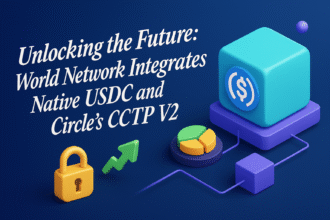AGI’s potential is booming, but industry leaders say decentralization is critical to ensuring ethical development.
The development of artificial general intelligence (AGI) — AI systems capable of human-level cognition — is accelerating, with projections now placing the AGI market’s value at $25.74 billion by 2031, up from $2.74 billion in 2023, according to Verified Market Research.
Although AGI remains theoretical, many experts believe we’re approaching a tipping point, and the debate over who will control AGI has never been more urgent.
Ethical Concerns Mount Around Centralized AGI Development
A recent survey by the Artificial Superintelligence (ASI) Alliance revealed that 48% of respondents believe AGI is being built for the benefit of Big Tech, not society at large. Public anxiety also centers on a lack of transparency and accountability in current AI development efforts.
In response, Dr. Ben Goertzel, founder of SingularityNET and a founding ASI Alliance member, launched a new initiative called “The Ten Reckonings.” This framework outlines urgent ethical, economic, and existential questions humanity must address as AGI becomes a reality.
One of the framework’s central issues: Will AGI be controlled by corporations or democratized for public benefit?
“Centralized AGI — built behind closed doors by companies using proprietary models — isn’t the only way forward,” Goertzel said. “In fact, it may not even be the best path.”
Blockchain Enables Community-Driven AGI Ecosystem
Goertzel and fellow researchers argue that blockchain technology provides the foundation for decentralized AGI. Rather than being controlled by a handful of tech firms, decentralized AGI would involve open collaboration between independent researchers, communities, and innovators worldwide.
“This model ensures AGI evolves to reflect diverse values, not just shareholder profits,” Goertzel explained.
James Tagg, inventor and co-founder of the Valis Corporation, is developing technology to ensure intellectual property rights (IPR) for humans are respected in the AGI age. His team is working to record DNA, neural data, and creative ideas on a blockchain to protect ownership and prevent centralized data capture.
“If we want AGI to serve humanity, we must decentralize data ownership — and blockchain is the best tool we have for that,” Tagg said.
ASI Chain: A New Blockchain Built for Decentralized AGI
To support this vision, the ASI Alliance is launching ASI Chain, a dedicated blockchain designed to support AGI development through decentralized governance and coordination. The testnet is launching soon, with mainnet deployment expected in Q3 2025.
“Blockchain is more than infrastructure — it’s what enables transparency and accountability in AGI development,” Goertzel noted.
Decentralization Comes With Technical Hurdles
While promising, this decentralized AGI model faces significant challenges, especially around privacy and security. Tagg acknowledged that protecting sensitive personal data — such as brain activity or DNA sequences — on public ledgers requires advanced encryption and access control solutions.
“We’re trying to strike a balance between transparency and privacy,” Tagg said.
Zoltan Istvan, a transhumanist author and collaborator with Goertzel, added that while blockchain is useful now, AGI itself might eventually develop superior systems for data exchange and coordination.
“Blockchain is a tool — but AGI will likely create even better tools in the future,” Istvan said.
Decentralized AGI Progress Is Already Visible
Despite the hurdles, Goertzel remains confident. The ASI Alliance is already rolling out innovations like the Qwello Researcher Process, which combines knowledge graphs with LLMs to create smarter, more adaptive AI.
Meanwhile, Tagg’s Valis Corporation is developing a biocomputer powered by brain organoids, mimicking human neural behavior. This system could help simulate human brain function for drug testing or serve as an entirely new kind of computational interface.
“This biocomputer isn’t just a model — it’s a step toward building machines that think more like we do,” Tagg stated.
With billions in projected growth and powerful tools like blockchain and neural-symbolic computing in play, decentralized AGI may prove to be the most transformative — and democratic — tech shift of the decade.










